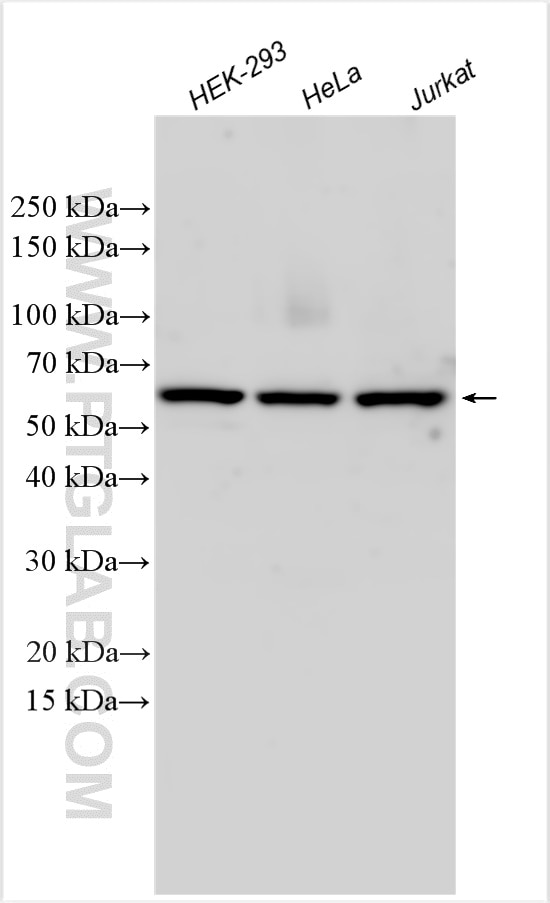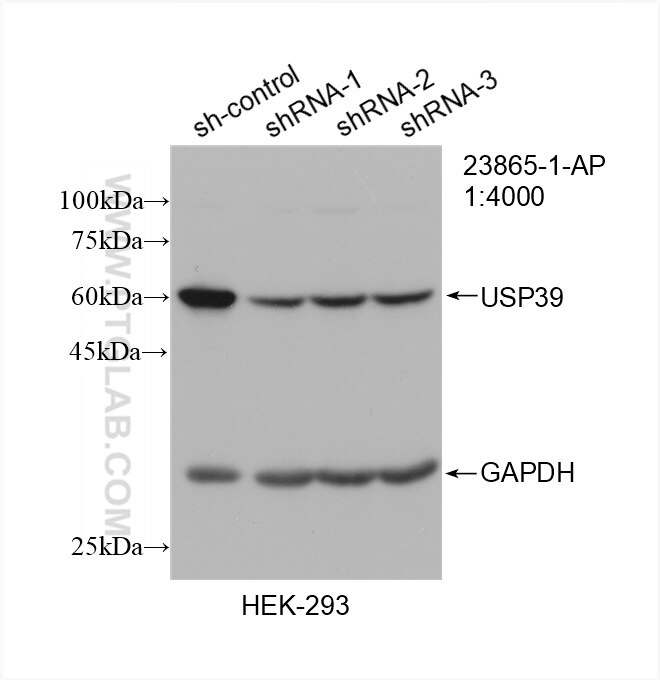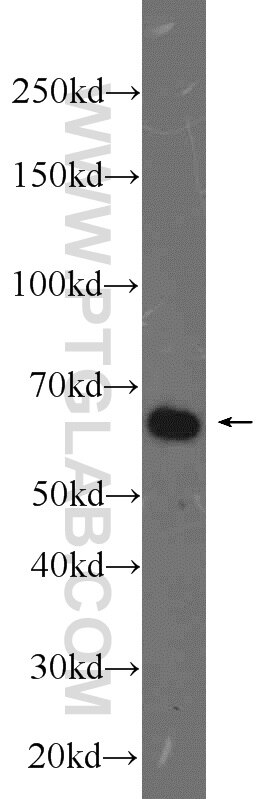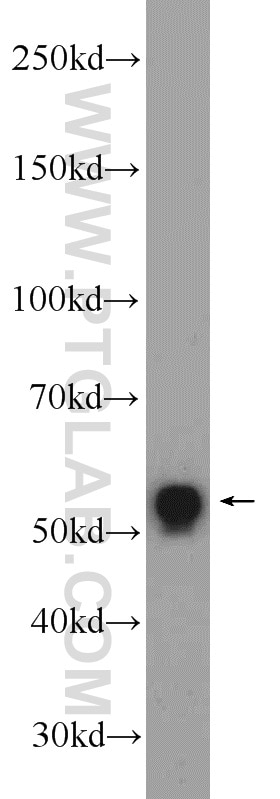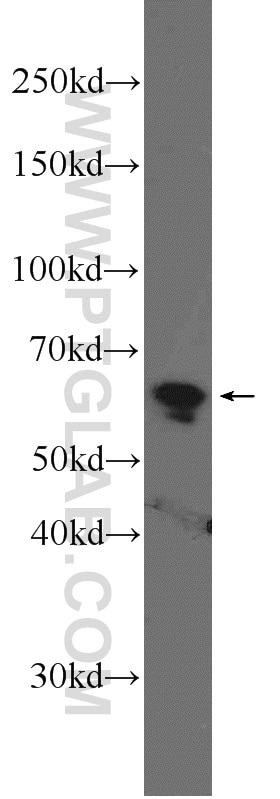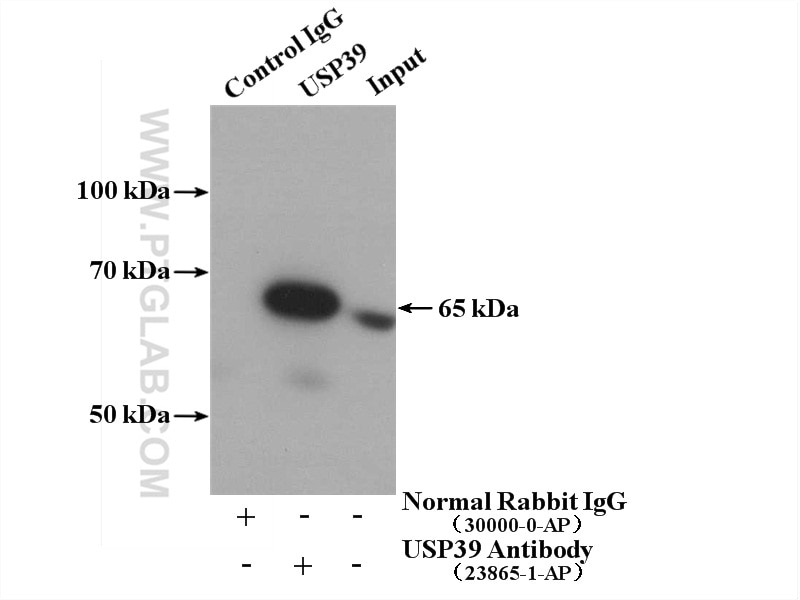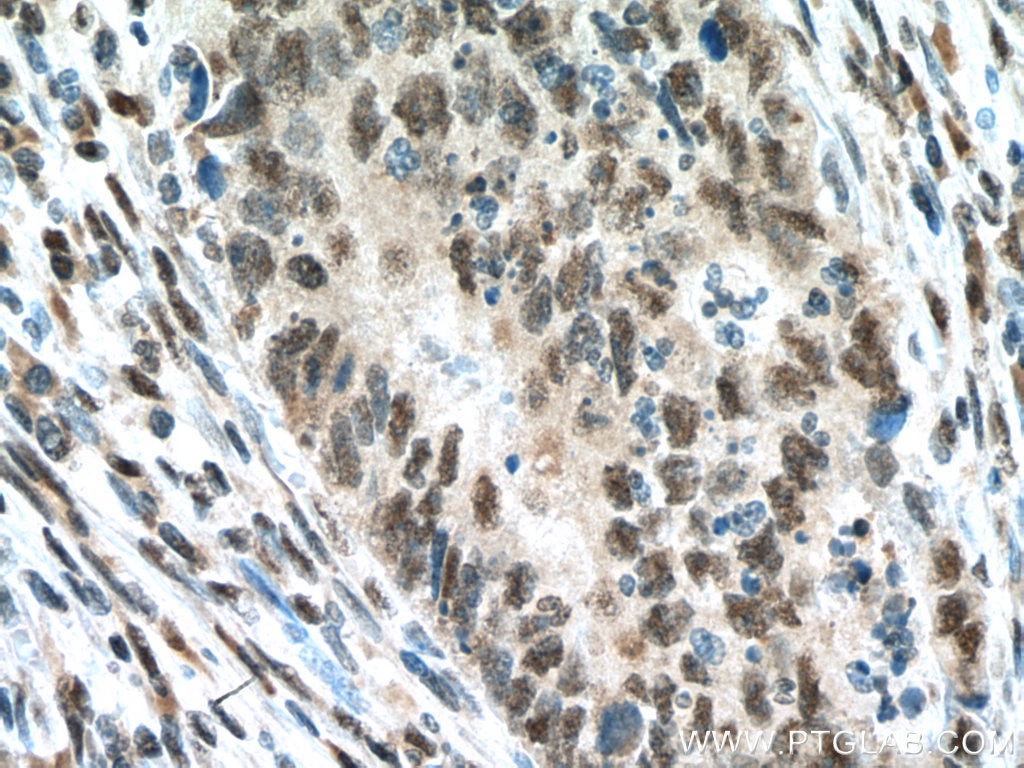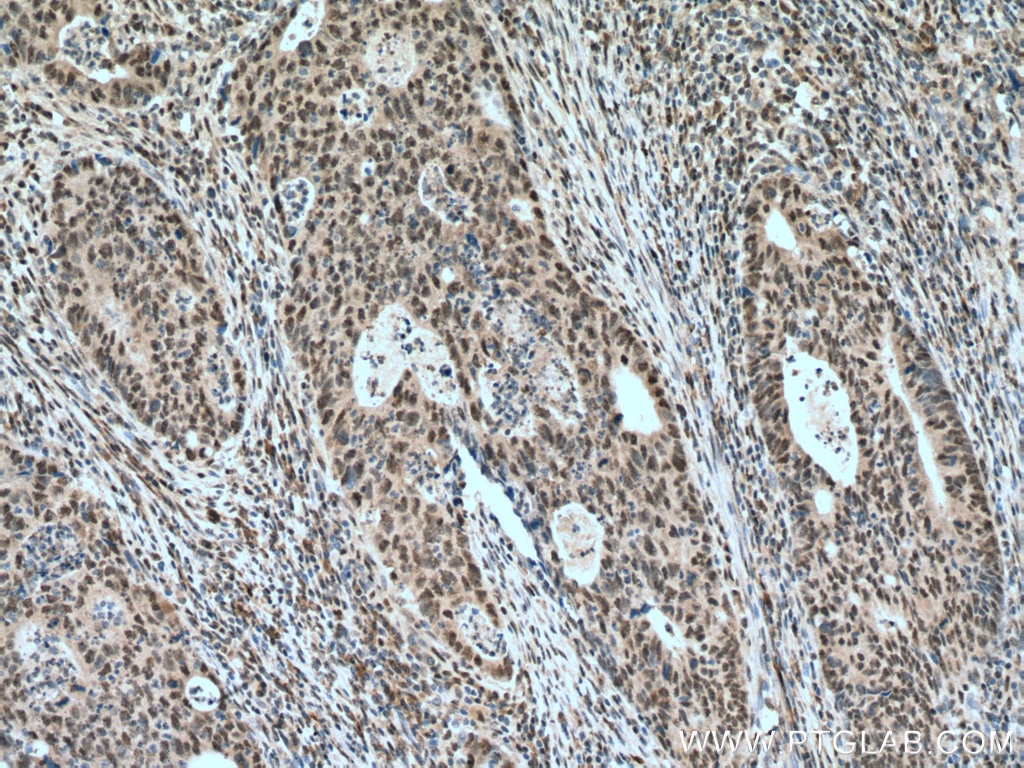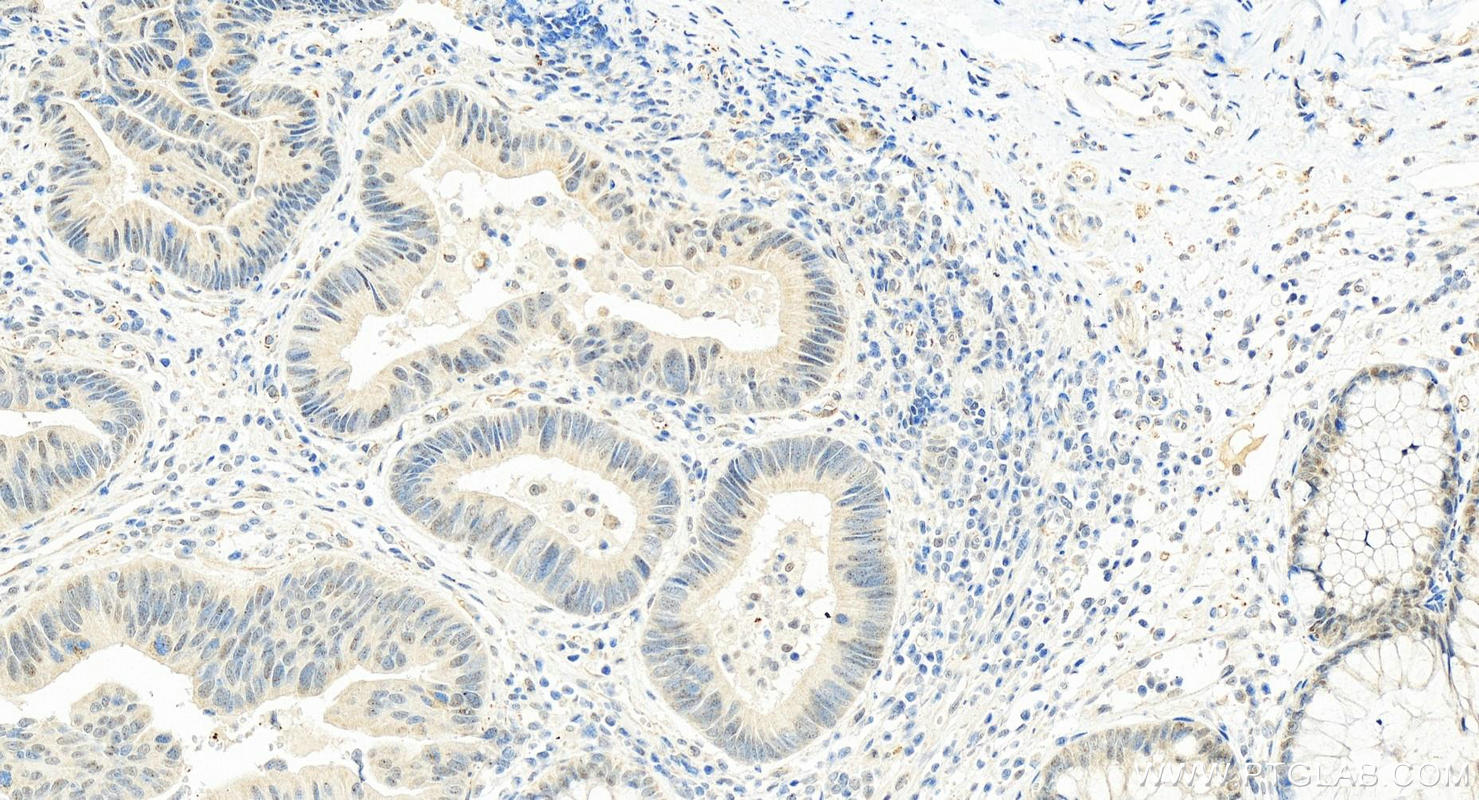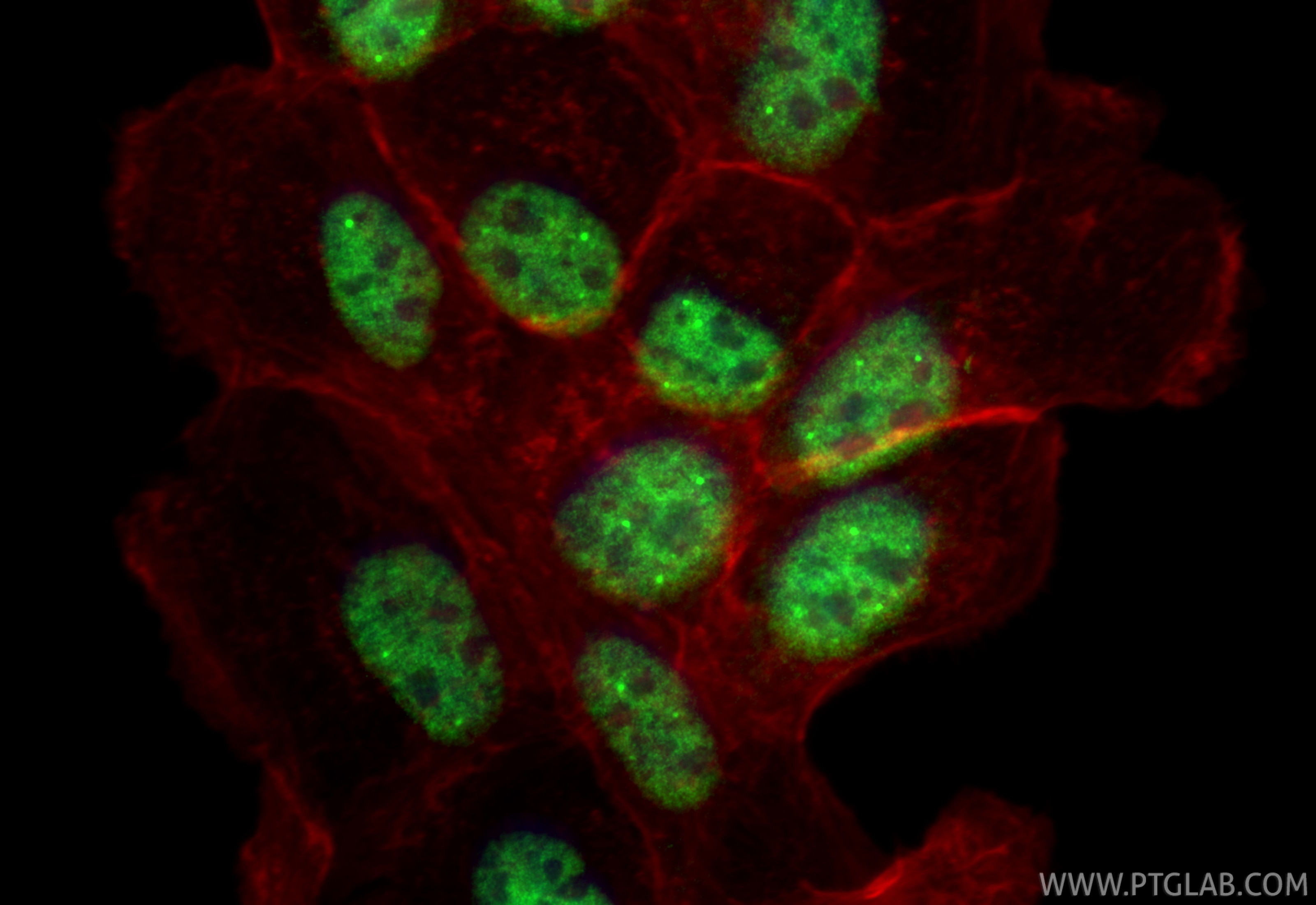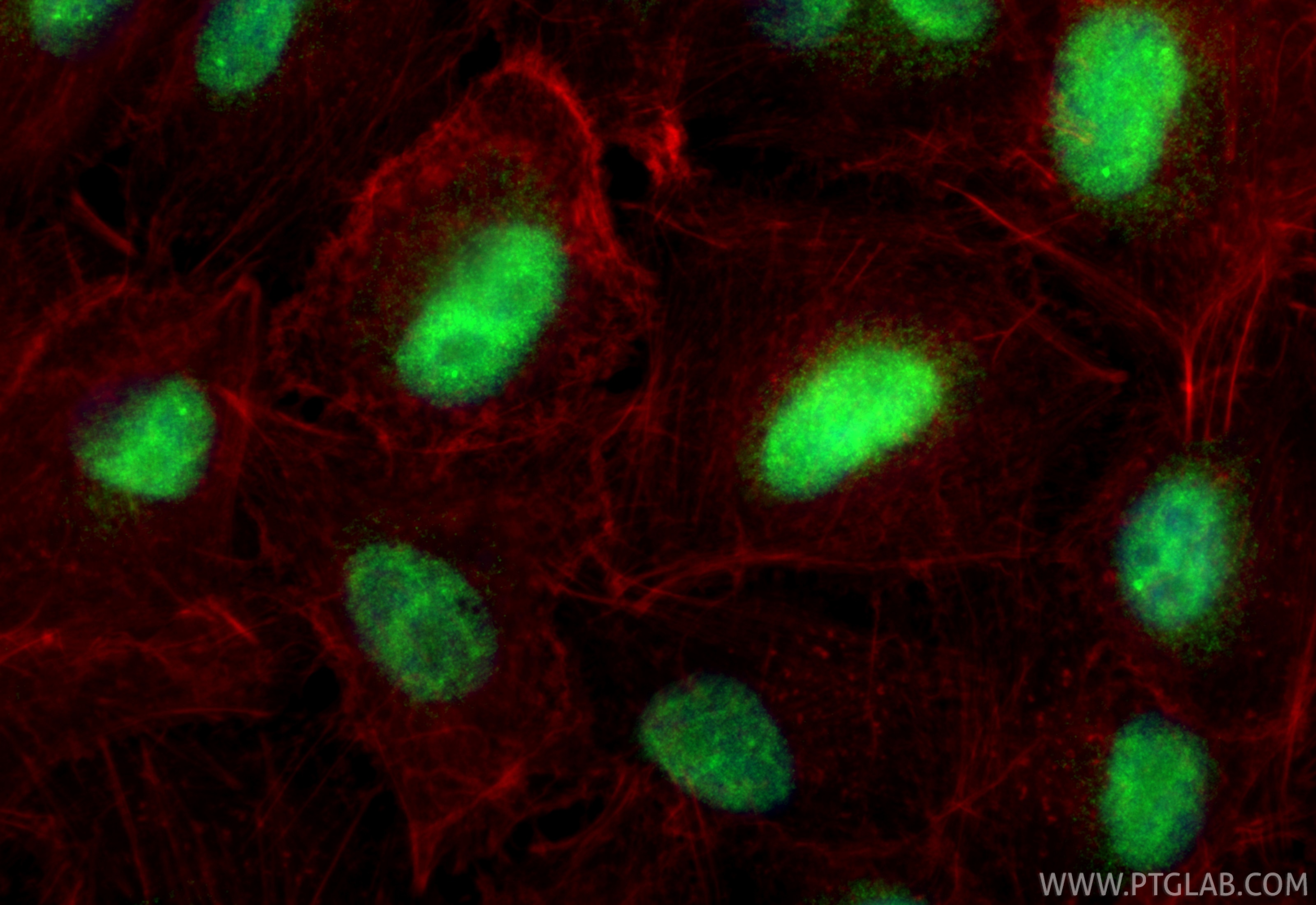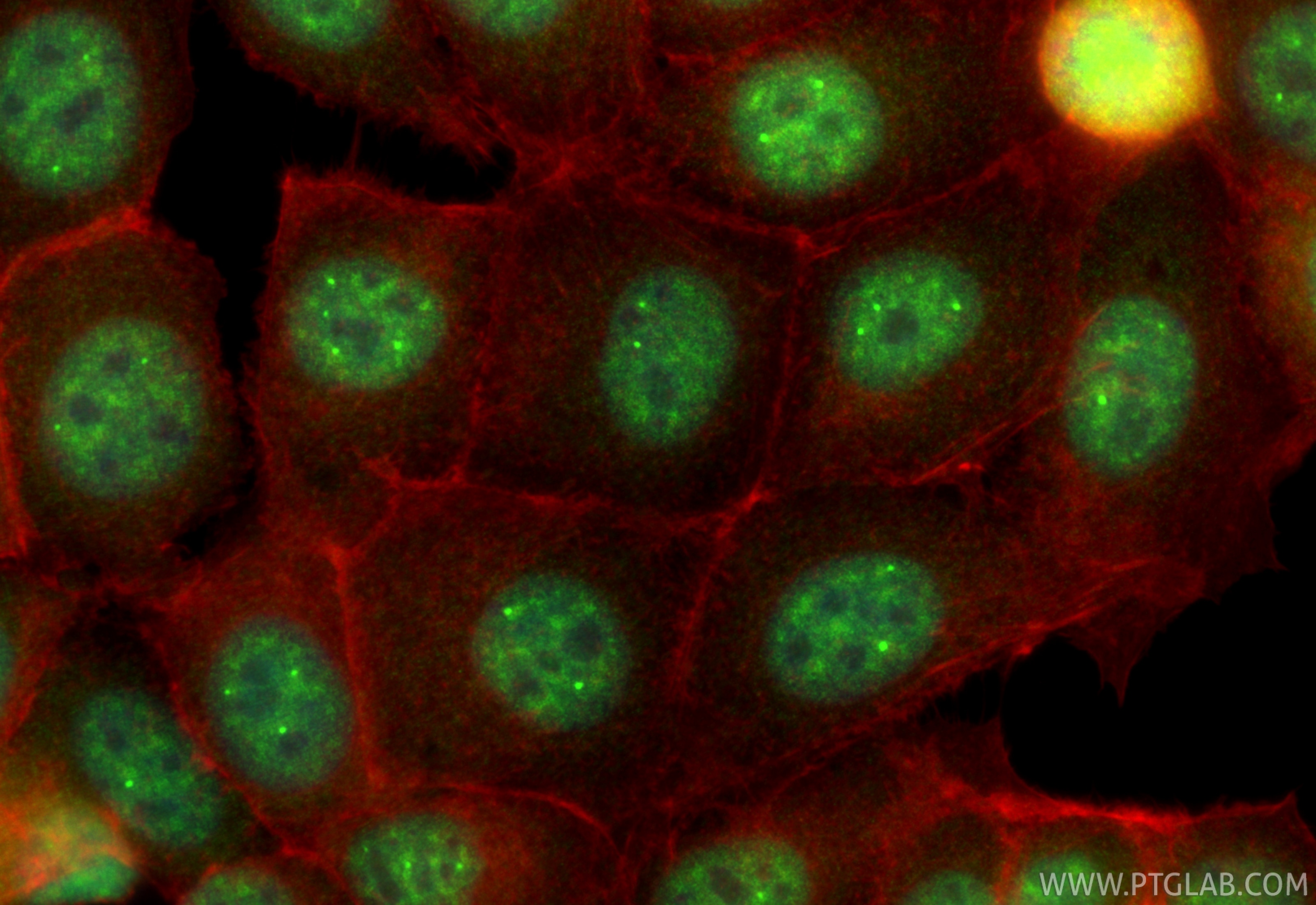Tested Applications
| Positive WB detected in | HEK-293 cells, HeLa cells, HepG2 cells, K-562 cells, Jurkat cells |
| Positive IP detected in | K-562 cells |
| Positive IHC detected in | human colon cancer tissue Note: suggested antigen retrieval with TE buffer pH 9.0; (*) Alternatively, antigen retrieval may be performed with citrate buffer pH 6.0 |
| Positive IF/ICC detected in | MCF-7 cells, A431 cells, A549 cells |
Recommended dilution
| Application | Dilution |
|---|---|
| Western Blot (WB) | WB : 1:2000-1:16000 |
| Immunoprecipitation (IP) | IP : 0.5-4.0 ug for 1.0-3.0 mg of total protein lysate |
| Immunohistochemistry (IHC) | IHC : 1:600-1:2400 |
| Immunofluorescence (IF)/ICC | IF/ICC : 1:50-1:500 |
| It is recommended that this reagent should be titrated in each testing system to obtain optimal results. | |
| Sample-dependent, Check data in validation data gallery. | |
Published Applications
| KD/KO | See 11 publications below |
| WB | See 16 publications below |
| IHC | See 4 publications below |
| IF | See 2 publications below |
| IP | See 2 publications below |
| CoIP | See 1 publications below |
| RIP | See 4 publications below |
Product Information
23865-1-AP targets USP39 in WB, IHC, IF/ICC, IP, CoIP, RIP, ELISA applications and shows reactivity with human samples.
| Tested Reactivity | human |
| Cited Reactivity | human, mouse |
| Host / Isotype | Rabbit / IgG |
| Class | Polyclonal |
| Type | Antibody |
| Immunogen |
CatNo: Ag20894 Product name: Recombinant human USP39 protein Source: e coli.-derived, PET30a Tag: 6*His Domain: 1-357 aa of BC067273 Sequence: MSGRSKRESRGSTRGKRESESRGSSGRVKRERDREREPEAASSRGSPVRVKREFEPASAREAPASVVPFVRVKREREVDEDSEPEREVRAKNGRVDSEDRRSRHCPYLDTINRSVLDFDFEKLCSISLSHINAYACLVCGKYFQGRGLKSHAYIHSVQFSHHVFLNLHTLKFYCLPDNYEIIDSSLEDITYVLKPTFTKQQIANLDKQAKLSRAYDGTTYLPGIVGLNNIKANDYANAVLQALSNVPPLRNYFLEEDNYKNIKRPPGDIMFLLVQRFGELMRKLWNPRNFKAHVSPHEMLQAVVLCSKKTFQITKQGDGVDFLSWFLNALHSALGGTKKKKKTIVTDVFQGSMRIFT Predict reactive species |
| Full Name | ubiquitin specific peptidase 39 |
| Calculated Molecular Weight | 565 aa, 65 kDa |
| Observed Molecular Weight | 60~65 kDa |
| GenBank Accession Number | BC067273 |
| Gene Symbol | USP39 |
| Gene ID (NCBI) | 10713 |
| RRID | AB_2879343 |
| Conjugate | Unconjugated |
| Form | Liquid |
| Purification Method | Antigen affinity purification |
| UNIPROT ID | Q53GS9 |
| Storage Buffer | PBS with 0.02% sodium azide and 50% glycerol, pH 7.3. |
| Storage Conditions | Store at -20°C. Stable for one year after shipment. Aliquoting is unnecessary for -20oC storage. 20ul sizes contain 0.1% BSA. |
Background Information
USP39 plays a role in many cellular processes including cellular antiviral response, epithelial morphogenesis, DNA repair or B-cell development. USP39 regulates apoptosis and G2/M cell cycle checkpoint in response to DNA damage by deubiquitinating and stabilizing CHK2
Protocols
| Product Specific Protocols | |
|---|---|
| IHC protocol for USP39 antibody 23865-1-AP | Download protocol |
| IP protocol for USP39 antibody 23865-1-AP | Download protocol |
| WB protocol for USP39 antibody 23865-1-AP | Download protocol |
| IF protocol for USP39 antibody 23865-1-AP | Download protocol |
| Standard Protocols | |
|---|---|
| Click here to view our Standard Protocols |
Publications
| Species | Application | Title |
|---|---|---|
Immunity Lactate modulates RNA splicing to promote CTLA-4 expression in tumor-infiltrating regulatory T cells | ||
Sci Adv Enhanced packaging of U6 small nuclear RNA and splicing-related proteins into extracellular vesicles during HIV infection | ||
Mol Oncol Ubiquitin-specific peptidase 39 promotes human glioma cells migration and invasion by facilitating ADAM9 mRNA maturation.
| ||
Biomolecules USP39-Mediated Non-Proteolytic Control of ETS2 Suppresses Nuclear Localization and Activity | ||
Am J Cancer Res USP39 facilitates breast cancer cell proliferation through stabilization of FOXM1
| ||
Oncotarget Overexpression of USP39 predicts poor prognosis and promotes tumorigenesis of prostate cancer via promoting EGFR mRNA maturation and transcription elongation.
|


